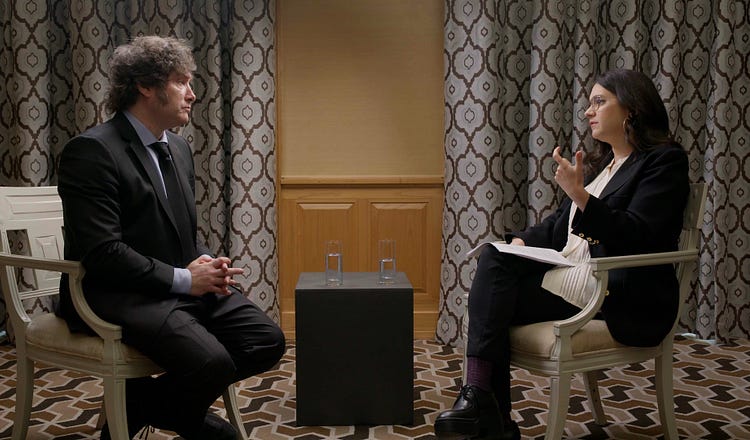Argentina’s President Javier Milei Loves Being the Skunk at the Garden Party

Bari with Argentina’s president Javier Milei. (The Free Press)
A sit-down with the world’s first libertarian head of state.
287
At the start of the twentieth century, Argentina was one of the wealthiest countries in the world. The capital, Buenos Aires, was known as “the Paris of South America.”
A lot can happen in a hundred years.
Argentina today is in grave crisis. It has defaulted on its sovereign debt three times since 2001, and a few months ago, it faced an annualized inflat…
Continue Reading The Free Press
To support our journalism, and unlock all of our investigative stories and provocative commentary about the world as it actually is, subscribe below.
$8.33/month
Billed as $100 yearly
$10/month
Billed as $10 monthly
Already have an account?
Sign In

